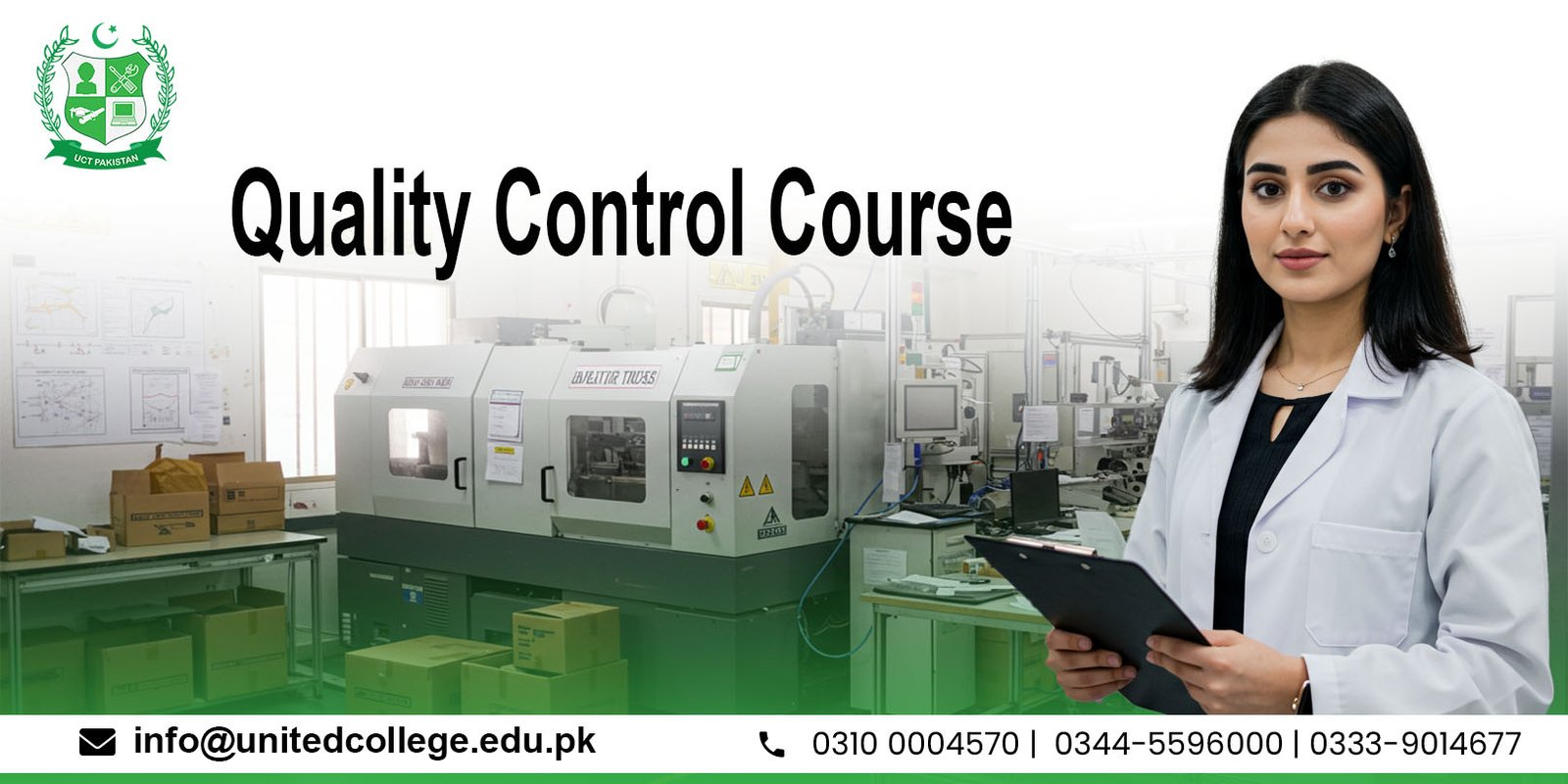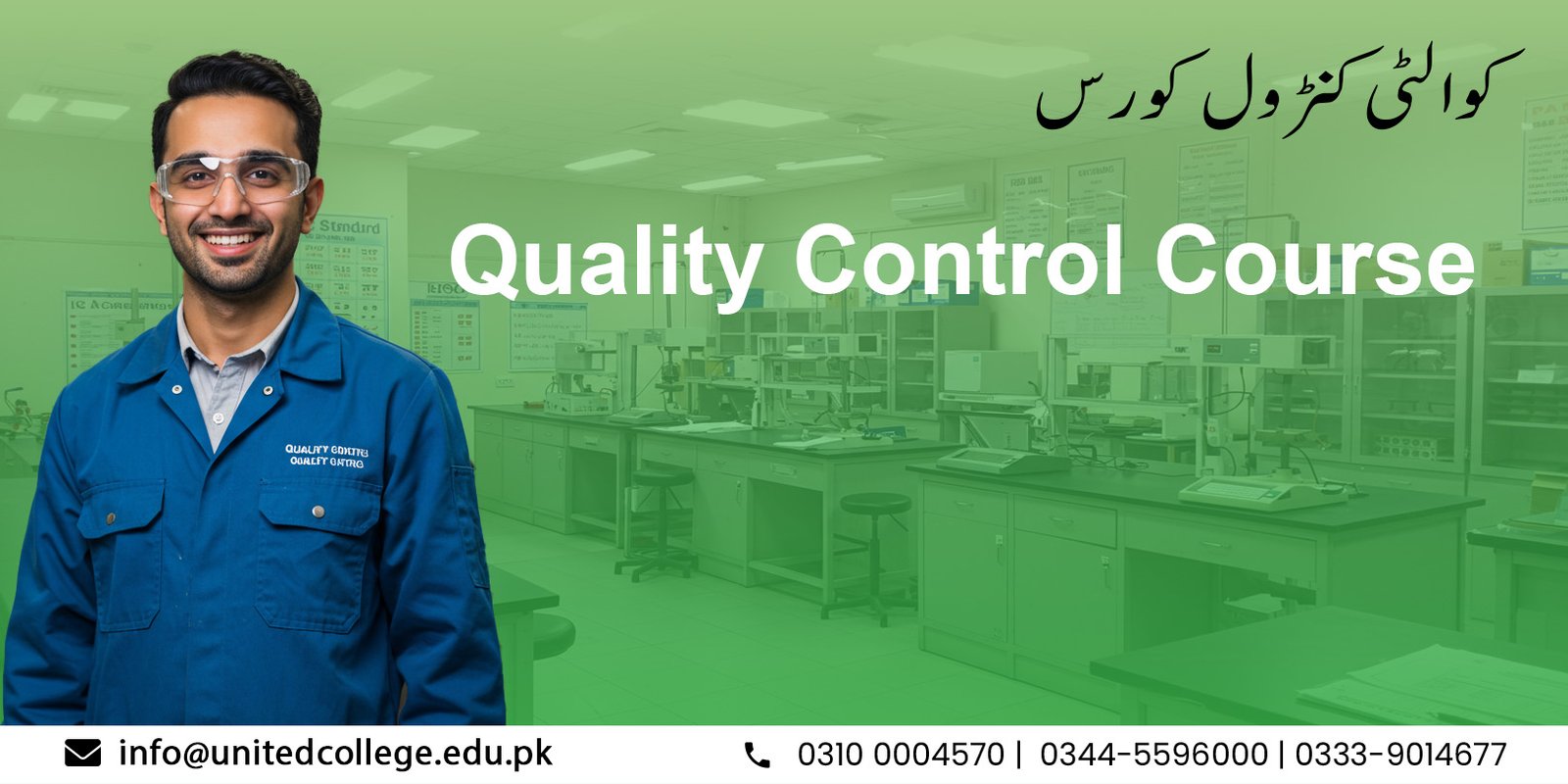

Quality control is the backbone of every industry where precision, safety, and standards matter. United College of Technology (UCT) offers a comprehensive Quality Control Course in Rawalpindi designed for students, technicians, and professionals aiming to build expertise in quality assurance, inspection techniques, and international standards. This course equips learners with the knowledge and skills needed to ensure that industrial and engineering products meet customer requirements and comply with ISO and other global benchmarks.
Quality control is not just about inspection—it is about preventing defects, maintaining consistency, and ensuring customer satisfaction. Industries such as oil & gas, construction, automotive, pharmaceuticals, and manufacturing all rely heavily on skilled quality control professionals. By enrolling in the Quality Control Course in Rawalpindi, students learn the critical role QC plays in reducing waste, increasing efficiency, and improving overall productivity.
The main objective of this training is to develop skilled quality professionals who can perform inspections, testing, and documentation as per industrial standards. Upon completing the course, students will understand concepts of quality assurance (QA), quality management systems (QMS), and statistical process control. They will also gain practical exposure to tools and techniques widely used in quality management.
A strong foundation is built on the difference between quality assurance (QA) and quality control (QC). QA focuses on preventing errors through planned processes, while QC deals with detecting errors through inspections and testing. In this section of the course, students gain a clear understanding of how both approaches work together to achieve excellence in industrial operations.
Inspection is one of the most important aspects of QC. The Quality Control Course in Rawalpindi covers various inspection methods, including visual inspection, dimensional checks, non-destructive testing (NDT), and sampling methods. Students learn how to select the most suitable inspection technique based on product type, industry-specific requirements, and client specifications.
International standards play a vital role in global trade and industry. The course includes detailed training on ISO 9001 (Quality Management System), ISO 14001 (Environmental Management System), and ISO 45001 (Occupational Health & Safety Management System). Learners gain insights into how organizations implement these standards to maintain compliance, improve quality, and build customer trust.
Modern quality control relies heavily on data. In this section, students are introduced to statistical process control (SPC), control charts, and sampling techniques. Understanding how to analyze and interpret data helps in identifying variations and improving processes. This skill makes graduates highly valuable to industries seeking data-driven quality improvements.
Students are trained in commonly used QC tools such as:
The Quality Control Course in Rawalpindi emphasizes real-world applications. From ensuring the strength of construction materials to monitoring oil pipeline welds, QC practices are essential. Students explore case studies from industries like cement, steel, pharmaceuticals, and electronics to understand how quality control ensures safety, compliance, and reliability in industrial processes.
A professional trained in quality control has vast career opportunities both locally and internationally. Graduates of this course can work as quality inspectors, QA/QC engineers, auditors, or supervisors in diverse industries. With growing emphasis on ISO standards training and compliance, demand for qualified QC professionals continues to rise.
United College of Technology is a leading technical institute in Rawalpindi, known for delivering industry-oriented training. Our QA training in Rawalpindi combines theory with hands-on practice, ensuring students are job-ready. Experienced instructors, updated course content, and practical workshops make UCT the right choice for anyone seeking a career in quality management.
The Quality Control Course in Rawalpindi is designed for both beginners and working professionals. Basic eligibility includes matriculation or intermediate education, though engineers and diploma holders benefit the most. The course duration typically ranges from 3 to 6 months, depending on the selected training module.
Enrolling in the course is straightforward. Interested students can apply online through the UCT website, submit the required documents, and secure their spot in upcoming batches. Early registration is recommended due to limited seats.


.webp)
.webp)
.webp)
The scope is vast as industries like construction, oil & gas, pharmaceuticals, and manufacturing all require skilled quality inspectors and QA professionals.
Students with matric, intermediate, diplomas, or engineering backgrounds can join. Fresh graduates and working professionals looking for career growth are also eligible.
Yes, the course covers ISO 9001, ISO 14001, and ISO 45001, providing students with internationally recognized quality management system knowledge.
Graduates can work as QA/QC engineers, quality inspectors, auditors, or supervisors in industries like oil & gas, construction, steel, cement, and pharmaceuticals.
The duration is typically 3–6 months, depending on the training module, covering both theory and practical workshops to ensure industry readiness.













